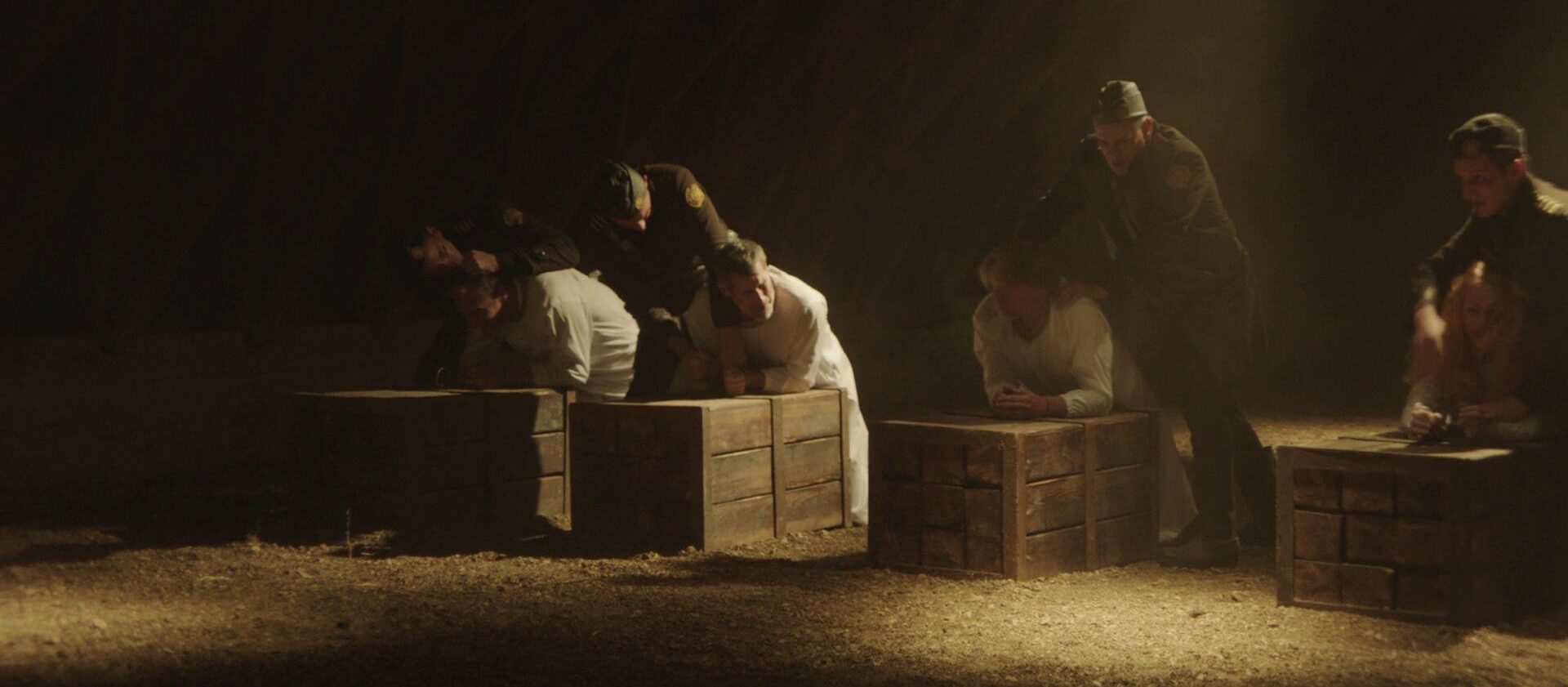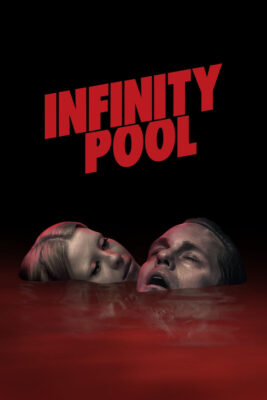

“You’re so frozen these days I can’t even tell if you’re sleeping or awake.”
After the intellectual and visceral thrills of Possessor, I had high hopes for whatever Brandon Cronenberg would cook up next. Infinity Pool, while constructed around a great hook, suffused with meaningful themes, and crafted with great style and imagination, loses its head of steam after the early revelation of its unique premise, failing to capitalize on its strong buildup and ultimately proving an unworthy follow-up to the director’s earlier effort.
Alexander Skarsgård stars as a failed writer who travels with his wealthy wife (Cleopatra Coleman) to an exotic resort in a third world country with strange laws and customs. At least they have religious traditions and folk-art and, you know, culture. The elites who vacation there view such things as quaint. Leaving the resort one evening with another couple (Mia Goth, Jalil Lespert) in violation of the resort’s policies, the writer accidentally kills a local pedestrian while drunk driving. They flee the scene, but in the middle of the night he is tracked down, arrested, and interviewed by the local sheriff (Thomas Krestchmann), who gives him the choice between execution at the hands of the dead man’s firstborn, or a bizarre alternative that involves someone else bearing the weight of his guilt, namely, a lab-grown clone of himself produced at great monetary cost. Choosing to undergo this harrowing ritual instead of giving up his own life, which includes bearing witness to the execution firsthand, the writer does not immediately flee the country in mortification, but, intrigued by the peculiar method of meting out justice, and nonplussed by its spiritual implications, he joins up with a club of rich hedonists who come to the island every year, commit heinous crimes against humanity, and then gleefully watch as their doubles, who carry all their memories at the time of cloning and believe they are the original, are mutilated and discarded. They’re like a gang of depraved Robert Angiers, willingly killing their own doppelgängers to continue their atrocious lifestyle.
Skarsgård’s commitment to the diminutive, entitled, crazed character carries this segment of the film, which soon reveals itself as a wicked humiliation ritual that sees him brutalizing his own clone and trudging along the road while Goth’s grating, high-camp dominatrix rides on the hood of the convertible inching along behind him drinking wine straight from bottle, eating fried chicken from a bucket and waving a handgun around without a care.
Where the director’s father, the renowned body horror auteur David Cronenberg, explored the ways that technology might alter and augment our bodies and minds into something grotesque, the son seems to be interested in the ways it could reshape our souls. But it doesn’t take a visionary to tell us that unrepentant debauchery is not a healthy way to live life, that orgies and first-degree murder cross a moral boundary that’s hard to walk back, and Infinity Pool never really moves beyond the Dorian Gray esque hook.
It does get a lot of mileage out of its highly stylized, pornographic, drugged-out dream sequences and its gory clone deaths, and its dreadful buildup is well-supported by Cronenberg’s bold camera angles and shot lengths. But whatever it thinks it is saying about bodily autonomy, identity, peer pressure, privilege, masculinity, abuse of power, what have you, it is not probing very deeply, and yet it carries itself too seriously for an out-and-out exploitation film and never achieves the “real danger” feeling of an effective horror film.
It’s a shame that it leaves one in the chamber by sparing only one suggestive scene on the possibility that the serial criminals might actually be the clones of clones of clones of clones.